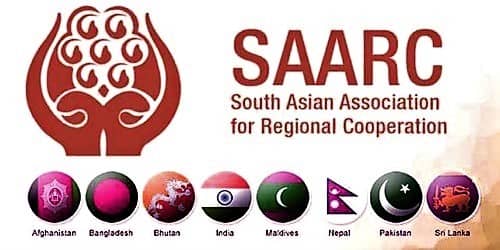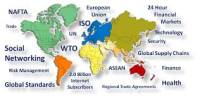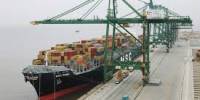SAARC, which stands for “South Asian Association for Regional Cooperation” is made up of a group of south Asian nations and is an organization dedicated to economic, technological, culture and was formed in December 1985. It originally started off with 7 countries but Afghanistan joined the organization in 2005. The South Asian Association for Regional Cooperation (SAARC) is an economic and geopolitical organization of eight countries including India, Pakistan, and Sri Lanka that are primarily located in South Asia or the Indian subcontinent. The SAARC Secretariat is based in Kathmandu, Nepal. Though it is home to around a quarter of the world’s population, the region accounts for just fewer than seven percent of the world’s GDP.
The idea of Saarc was first adopted by Bangladesh in 1977 by President Ziaur Rahman. Afghanistan became the newest member of SAARC at the 13th annual summit in 2005. China and Japan were granted observer status at the same.
The impacts and role of SAARC in foreign trade are written below –
(1) SAARC members work hard to form bonds of trust and understanding. There are many areas of cooperation; these include; agriculture, rural development, health, population control, narcotics control, and anti-terrorism and child welfare. Bangladesh is a developed country. It is not so good at agriculture, health sector. SAARC helps Bangladesh in this sector.
(2) SAARC improves the quality of life and welfare of the people of the member countries. For the helping hand of SAARC, the quality of people increased.
(3) To strengthen co-operative with other developing countries.
(4) To strengthen co-operative among themselves in an international forum on matters of common interest.
(5) To promote and strong then selective self-reliance among the countries of South Asia.
(6) To accelerate economic growth social progress and cultural development in the region.
(7) Small and medium-sized enterprises (SMEs) contribute significantly towards the economic capacity of the region and by providing employment and income opportunities are a decisive factor for poverty reduction.
(8) It aims to accelerate the process of economic and social development in its member states through increased intra-regional cooperation.
















